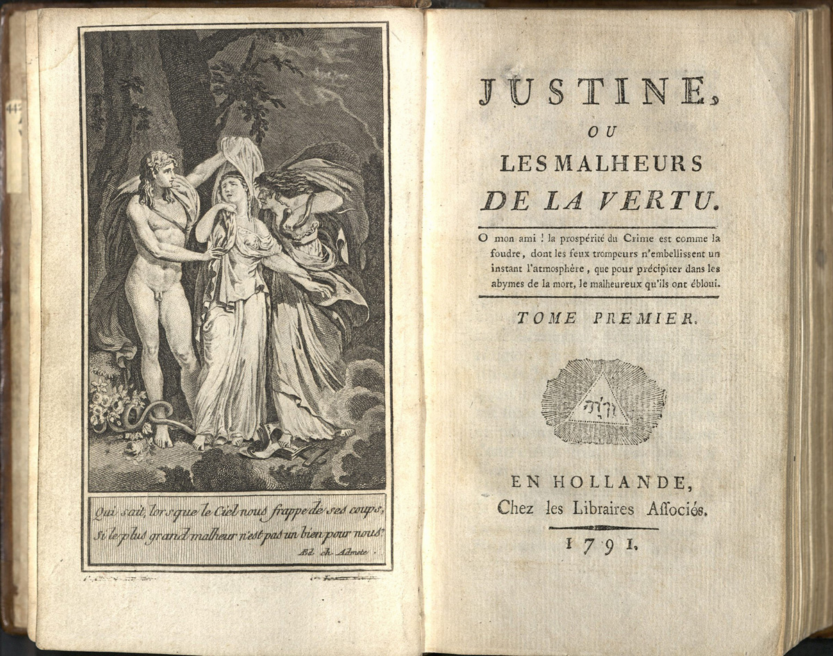英文読解から入試まで 完全マンツーマン指導
塾長のコラム 2020年6月15日 理由と原因を表す表現⑤
 |
 |
|
理由と原因を表す表現⑤ |
||
2020年6月15日 皆様、KVC Tokyo 英語塾 塾長 藤野 健です。 理由と原因の表現について5回に分けて扱います。第5回目の最終回です。 以下参考サイト:https://dictionary.cambridge.org/ja/dictionary/english/https://www.collinsdictionary.com/dictionary/french-english/vertuhttps://ja.wikipedia.org/wiki/美徳の不幸 |
||
 |
 |
 |
 |
|
for the sake of sth/ for sth's sake=because of, or for the purpose of something ~のゆえに、~の為にcf. on account of , for sth's account が理由を述べるのに対し、こちらは目的、利益の為の意味を強めます。Let's not disagree for the sake of (= because of) a few dollars.僅か2、3ドルの(得失の)ことで反対するのは止めないか。(ケチケチせずに2,3ドル出せよ。)Let's say, just for the sake of argument/ for argument's sake (= for the purpose of this discussion), that prices rise by three percent this year.議論の為に (議論を深めるために、議論のネタとする為に)言わせて貰うが、今年は価格が3%上昇しているのだ。You're only arguing for the sake of arguing (= because you like arguing).君は討論する為に討論しているだけだ (=君は論争するのが好きなだけだ)・ in order to help or bring advantage to someone ~を助ける為に、~を有利にするためにPlease do it, for David's sake.デイビットのため(を助けるため)にそれをしておくれ。= Please do it, in order to help David.Their parents only stayed together for the sake of the children.子供たちの為に両親は一緒に過ごしていただけだ。I hope for both our sakes that you're right!我々の互いの助けとなるべく君が正しくあることを望む。since=because; as, inasmuch as誰でも理解出来る明確な理由を提示し、だからそう結論、考察するのは当然だ、との意味合いを持ちます まぁ、歴然たる理由の提示ですね。Since we've got a few minutes to wait for the train, let's have a cup of coffee.列車まで2、3分あるからコーヒーでも呑もうじゃないか。I'm afraid I'm not a very good advertisement for the diet since I've actually put on weight!悪いが私はダイエットのあまり良い宣伝とはなっていないな。実際体重が増えて仕舞ったし!She stands a good chance, since only two people are contesting the seat and the other candidate is very unpopular.彼女は(勝利の)見込みがある。と言うのは、僅か2人が席を巡って競争しているだけでもう一人の方は全然評判が良くないからだ。= She's likely to win, ...cf. stand a chance of ~の見込みがあるI can testify to the foregoing since I was actually present when it happened.それが起きたときに私は実際現場に居たので、前言を証明できる。cf. testify to sth ~を証言する、証明するcf. testify that ~だと証明する、証言するThere's no point hypothesizing about how the accident happened, since we'll never really know.事故が如何にして発生したのかについて仮説化するのは意味が無い、と言うのは我々はこの先も本当のことは何も知らないだろうから。cf. There is no point doing sth~するのは意味が無いcf. There is no use doing sth~するのは無駄であるIt is no use crying over spilt milk. 覆水盆に返らず。I presume that they're not coming, since they haven't replied to the invitation.彼らは来ないだろうと私は推定する。なぜなら招待に返事も寄越してないからだ。so=and for that reason; therefore ~と言うわけで、それゆえMy knee started hurting so I stopped running.膝が痛み始めたので、走るのを止めた。I was lost so I bought a street map.迷子になったので街路地図を買った。She was ill so I sent her some flowers to cheer her up.彼女は病気だったので元気づける為に花を贈った。I felt a bit chilly so I put on a jacket.少し肌寒かったのでそれでジャケットを羽織った。*so 以下の文章は時間的に後のことを表しますので、文の先頭には置けません。because, since, as とは文章の主従関係が逆転します。I felt a bit chilly so I put on a jacket.= Because I felt a bit chilly, I put on a jacket.cf. put on服を着るput on one's clothes .= wear one's clothes~のふりをする.put on an innocent air 無邪気な様子を装う (=本当は無邪気では無い、偽っている)= pretend to be innocentcf. so that~である様なとても~の状態だ→とても~なので~だto such a great degree; very:He’s so stupid that he’d believe anything you tell him.= He’s stupid to such a great degree that he’d believe anything you tell him.君が彼に話すことを全部信じるだろうほどに彼は愚かです。*that は関係代名詞であり to such a great degree が省略されたもの、と考えても良いでしょう。→彼はとても愚かで(愚かなので)君が彼に話すことを全部信じるだろう。*本来、程度が強いことを表現する文章ですが、理由(原因)と結果を示す様に訳出することも可能です。*しかしこの so は理由を表す so とは異なることにご注意下さい。He's so busy that he can't sleep well.彼は十分に睡眠が取れないほど忙しいです。→彼は忙しくて十分に睡眠が取れません。= He's too busy to sleep well.*この too は more than enough 有りすぎる、を意味する副詞です。~するには~過ぎる→~なので~出来ないThe water was too cold to swim in.その水は泳ぐには冷たすぎる。→その水は冷たすぎて泳げない。Two hours is too long to wait.2時間は待つには長すぎる。→2時間なんて待てないよ。cf. enough*2つの意味があります:・as much as is necessary; in the amount or to the degree needed:必要を満たすだけのDo you have enough money to pay for your train fare and taxis?あなたは鉄道代金とタクシーを支払うお金を持っていますか?Is this box big enough for all those books?この箱はそれらの本が全部入る大きさですか?・as much as or more than is wanted:望む以上のI've had enough of your excuses (= I want them to stop).君の釈明はもう十分受けたよ(もう止めて欲しい)。 |
||
 |
 |

https://fr.wikipedia.org/wiki/Justine_ou_les_Malheurs_de_la_vertu
https://upload.wikimedia.org/wikipedia/commons/6/68/Sade_1.jpeg
Public domain
Justine, ou Les Malheurs de la Vertu = Justine, or The Misfortunes of Virtue
サドの1791 年の作品 『美徳の不幸』。修道院を出た2人の姉妹の姉ジュリエッタは
淫蕩と悪辣の限りを尽くして伯爵夫人の地位と莫大な財産を手にしますが、一方
宗教的美徳を守らんと生きた妹ジュスティーヌには、次々と不幸が降りかかり、最後
は重罪で処刑寸前のところでジュリエッタに会い、来し方を告白します。正直者が
馬鹿を見る、どころではないこの世の不条理且つ真実が描かれていると塾長は感じ
ますが、サドの作品は学生時代に幾つか読了しました。仏文に興味ある方は読んで
みて下さい。尚、本書はオランダの Affocies 書店(おそらくは Paris の書房)から
匿名で出版され著者名が記されていません。
 |
 |
|
thanks to sb/sthidiom=because of: ~のお蔭でThanks to Sandy, I found this great apartment.サンディのお蔭でこの凄いアパートを見つけられた。for one thing (and for another)・used to introduce a reason for something: 1つには~だから、もう1つは~だから"Why won't you come to New York with me?" "For one thing, I don't like flying, and for another, I can't afford it."どうして私と一緒にニューヨークに行かないの?理由の一つはとしては飛行機が嫌いだしもう一つはお金がないからさ。by virtue offormal=because of; as a result of:cf. virtue は美徳、長所の意味ですが、by virtue of にこの意味は無く、単純に because of に置き換えられます。She succeeded by virtue of her tenacity rather than her talent.才能と言うよりは、寧ろ粘り強さで彼女は成功した。≒才能ではなく、粘り強さで彼女は成功した。cf. A rathet than B ≒ not B but A BではなくArather は、どちらかと言えば、ではなく~だ、などの意味の曖昧性を含んでいます。A とB 2つのものをじっくり比較検討した結果、どちらかと言うとBよりAの要素が勝っているとの解釈になりますが、BではなくAであると断言する訳出で支障ないと考えます。この和訳の場合でも、彼女に才能が無いとはどこにも表現はしていません。2つの要素を比べた場合、成功の理由は粘り強さだったと主張しているだけです。この点から「寧ろ」は省略して良いでしょう。what withidiom informal・used to talk about the reasons for a particular situation, especially a bad or difficult situation: ~やらで悪い結果をもたらした原因、理由を示す。口語表現ゆえ formal な文章には使えません。I'm very tired, what with travelling all day yesterday and having a disturbed night.ふぅ~っ疲れたぜ。昨日は1日旅行したり夜は騒ぎだったりしたからなぁ。with・because of or caused by someone or something: ~の理由で、~が原因でHe winced with pain.彼は傷みで顔をしかめた。I was trembling with fear.恐怖でブルブル震えていた。She's been at home with a bad cold for the past week.過去一週間彼女は風邪が悪化して家に籠もっている。I can't work with all that noise going on.このやかましい騒音が続いていて仕事が出来ない。Hopes were dashed in the war-torn capital with the news that no aid would be arriving that week.その週には救援が届かないだろうとのニュースで戦争に引き裂かれた首都に希望は打ち砕かれた。With exams approaching, it's a good idea to review your class notes.試験が近づいているのだから、君が自分の授業ノートを見直すのは良いアイデアだ。*理由を示す分詞構文ですね。(What) with all the excitement and confusion, I forgot to say goodbye to her.興奮と混乱とで彼女にさようならを言うのを忘れた。cf. forget to do 忘れて~しない、~し忘れる (未遂)forget doing したことを忘れる (既遂) |
||
 |
 |
 |
 |
|
以上5回に分けて理由を表現する語句をリストアップしましたが、いずれも because of , as a result of などの語で、ニュアンスは消失しますが、書き換え可能です。 英文の文意を迅速に得るには、例えば in the light of を ~に照らして、などと訳さずに、~ゆえに、とさっと脳内変換すると良いでしょう。修辞的な表現に惑わされず、まずは第一に英文の論理構造を読み取ると英文解釈がすっきりと効率的に進みます (これが正直英文解釈のキモであり、或いは同時通訳などにも利用出来るでしょう)ので頭に入れておいて下さい。 |
||
 |
 |


